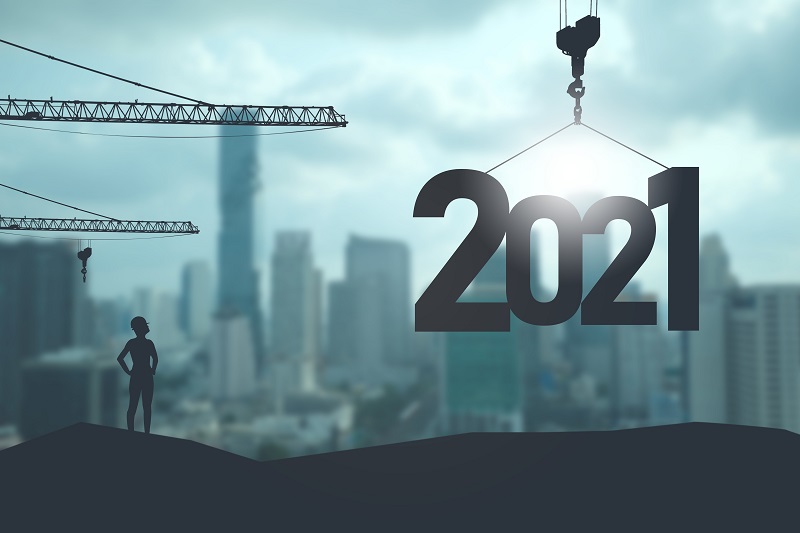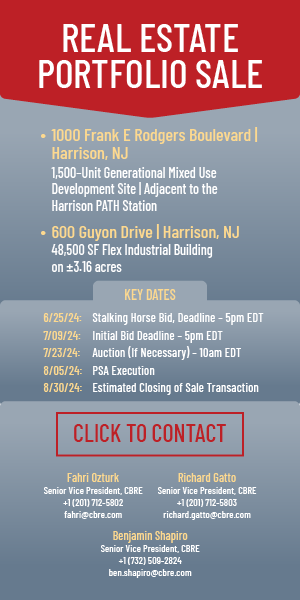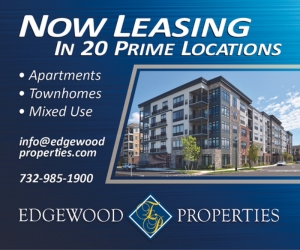Editor’s note: This is part of a special advertising section appearing in Real Estate NJ’s January issue.
After a year like no other, New Jersey’s commercial real estate industry is eager to turn the page. But many believe the pandemic’s impact will be felt for months if not years to come.
As always, we’re here to help you make sense of it all with the help of some top developers, service providers and thought leaders. You can find their predictions for the year ahead and more in our special 2021 Market Forecast.
Lance Blake, RA, AIA, President
 As we are all anxiously anticipating the return to normalcy with the forthcoming vaccination, we still see the same strengths and weaknesses in the various real estate sectors moving into 2021 and possibly beyond. While the multifamily mixed-use (supportive retail) and industrial and medical office sectors continue to grow at a rapid pace, commercial office remains stagnant as businesses figure out their future footprints and workplace model with remote home offices. The anticipated boost from an exodus from Manhattan to New Jersey has not materialized as first thought and appears as a nonstarter in the near future. In fact, our clients in the multifamily sector are retooling their amenities to accommodate more workplace environments and units with built-in workspaces, a design trend that may be here to stay.
As we are all anxiously anticipating the return to normalcy with the forthcoming vaccination, we still see the same strengths and weaknesses in the various real estate sectors moving into 2021 and possibly beyond. While the multifamily mixed-use (supportive retail) and industrial and medical office sectors continue to grow at a rapid pace, commercial office remains stagnant as businesses figure out their future footprints and workplace model with remote home offices. The anticipated boost from an exodus from Manhattan to New Jersey has not materialized as first thought and appears as a nonstarter in the near future. In fact, our clients in the multifamily sector are retooling their amenities to accommodate more workplace environments and units with built-in workspaces, a design trend that may be here to stay.
 (973) 740-9755
(973) 740-9755
[email protected]
16 Microlab Road, Suite B
Livingston, NJ 07039
Monica Padovano Casiello, Director of Marketing and Business Development
 The industrial real estate market in New Jersey will continue to outpace all other sectors in 2021. Developers are responding quickly to fill a demand for Class A warehouse space, cold storage and increased capacity — all driven by the explosion of e-commerce. We also are seeing more industrial activity within newer submarkets as developers seek to overcome the dearth of available, buildable land in central New Jersey. Increased activity in the office market wouldn’t be surprising in the new year, spurred by a number of factors such as new economic incentives, and pandemic-related shifts like suburban migration and the eventual return to the workplace. Multifamily developments will continue to rise up: This sector will be strongest, second only to industrial. Most of the projects in our pipeline are industrial and multifamily, but we expect an uptick in deals involving anchor institutions as well.
The industrial real estate market in New Jersey will continue to outpace all other sectors in 2021. Developers are responding quickly to fill a demand for Class A warehouse space, cold storage and increased capacity — all driven by the explosion of e-commerce. We also are seeing more industrial activity within newer submarkets as developers seek to overcome the dearth of available, buildable land in central New Jersey. Increased activity in the office market wouldn’t be surprising in the new year, spurred by a number of factors such as new economic incentives, and pandemic-related shifts like suburban migration and the eventual return to the workplace. Multifamily developments will continue to rise up: This sector will be strongest, second only to industrial. Most of the projects in our pipeline are industrial and multifamily, but we expect an uptick in deals involving anchor institutions as well.
 (908) 803-5948
(908) 803-5948
[email protected]
3 Werner Way
Lebanon, NJ 08833
Kristian Cichon, ME, BE, Project Manager & Development Analyst
 Following such a truly unprecedented year, the outlook for 2021 remains wide open as we await further clarity on the political landscape, vaccine news and economic stimulus. Pre-COVID, over 1.9 million workers commuted into New York City, with that number drastically diminishing in 2020. What we have seen in the New Jersey market is the absorption of New York City residents and office tenants to markets of focus such as Jersey City, Hoboken, Montclair and Morristown. Some are companies seeking downsized locations while others are opting for “hub-and-spoke” models. This will drive demand for smaller, niche office spaces. The multifamily sector will continue to see consistent demand due to New York City workers finding value in new multifamily inventory in primary and tertiary New Jersey markets. As contractors, developers and brokers we continue to see new multifamily projects move ahead in places such as Bound Brook, Plainfield and North Bergen, complementing long-term or permanent “work-near-home” models poised to benefit New Jersey markets.
Following such a truly unprecedented year, the outlook for 2021 remains wide open as we await further clarity on the political landscape, vaccine news and economic stimulus. Pre-COVID, over 1.9 million workers commuted into New York City, with that number drastically diminishing in 2020. What we have seen in the New Jersey market is the absorption of New York City residents and office tenants to markets of focus such as Jersey City, Hoboken, Montclair and Morristown. Some are companies seeking downsized locations while others are opting for “hub-and-spoke” models. This will drive demand for smaller, niche office spaces. The multifamily sector will continue to see consistent demand due to New York City workers finding value in new multifamily inventory in primary and tertiary New Jersey markets. As contractors, developers and brokers we continue to see new multifamily projects move ahead in places such as Bound Brook, Plainfield and North Bergen, complementing long-term or permanent “work-near-home” models poised to benefit New Jersey markets.
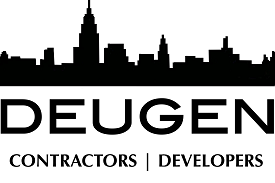 (201) 210-8622
(201) 210-8622
[email protected]
720 Monroe St., Suite E416
Hoboken, NJ 07030
Shane Connell, Executive Vice President
 As we look ahead to 2021 and beyond, it’s clear the standard office will be asked to accommodate a new level of safety standards to meet higher expectations for cleanliness while taking into careful consideration how well-equipped they are to manage daily workers once again. The demand for flex office space, including co-working options, will also continue to rise as businesses large and small tackle the safe return to the workplace. This will similarly drive the hub-and-spoke model in suburban locations that provide access to urban cores, particularly as more companies set up outposts to accommodate remote workers and corporate offshoots.
As we look ahead to 2021 and beyond, it’s clear the standard office will be asked to accommodate a new level of safety standards to meet higher expectations for cleanliness while taking into careful consideration how well-equipped they are to manage daily workers once again. The demand for flex office space, including co-working options, will also continue to rise as businesses large and small tackle the safe return to the workplace. This will similarly drive the hub-and-spoke model in suburban locations that provide access to urban cores, particularly as more companies set up outposts to accommodate remote workers and corporate offshoots.
The office sector will continue to be shaped by the modern American workforce’s increasing demands for a human-centered approach to the workplace. Today’s workforce demands an environment that balances the demands of career and community, and office providers who offer holistic work environments will continue to attract tenants, providing settings in which individuals thrive in both their professions and personal lives.
 (908) 673-3700
(908) 673-3700
[email protected]
300 Connell Drive
Berkeley Heights, NJ 07922
Joe Forgione, Founder and Principal
 The luxury rental market will continue to grow in 2021. With more people working from home, renters will gravitate toward properties that offer private outdoor space, den units and amenities such as enhanced business centers and fitness facilities with appropriate safety protocols. At JMF, we are big believers in cleaner, healthier, safer buildings and ‘over-amenitizing’ our properties, two key things renters will look for. Proximity to mass transit will remain important, but proximity to businesses will be just as important. Can renters walk to shops and restaurants? Properties near downtowns will outperform.
The luxury rental market will continue to grow in 2021. With more people working from home, renters will gravitate toward properties that offer private outdoor space, den units and amenities such as enhanced business centers and fitness facilities with appropriate safety protocols. At JMF, we are big believers in cleaner, healthier, safer buildings and ‘over-amenitizing’ our properties, two key things renters will look for. Proximity to mass transit will remain important, but proximity to businesses will be just as important. Can renters walk to shops and restaurants? Properties near downtowns will outperform.
On the retail front, curbside grocery pickup will remain a trend and developers will have to factor customer loading/waiting areas into future construction plans. New retail center designs will include larger sidewalks to accommodate outdoor dining. Municipalities that understand what national retail tenants look for when they commit to a site and are flexible with the variances they grant will attract more new businesses and more tax ratables than other towns.
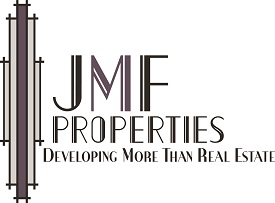 (973) 451-0111
(973) 451-0111
[email protected]
80 South Jefferson Road, Suite #202
Whippany, NJ 07981
Craig Gianetti, Esq., Partner
 From a real estate perspective, the COVID-19 effect has only accelerated what was already occurring, particularly the weakness in retail and strength of industrial. The demise of shopping centers had begun before COVID-19. Property owners in 2021 will look to repurpose shopping centers or adding residential on portions of such properties.
From a real estate perspective, the COVID-19 effect has only accelerated what was already occurring, particularly the weakness in retail and strength of industrial. The demise of shopping centers had begun before COVID-19. Property owners in 2021 will look to repurpose shopping centers or adding residential on portions of such properties.
Residential, particularly new construction, is still driven by New Jersey’s affordable housing laws. The amount of new apartment construction proposed in 2021 is staggering. The once hot urban markets will cool off and the suburban markets will remain strong given the exodus from cities. How long this trend lasts will be dependent upon how companies handle remote working after the vaccine.
The pre-COVID-19 trend was companies relocating to urban areas and creating the ‘collaborative space’ with unassigned desks and no individual offices. That is no longer desirable. The office market in suburban areas may see an uptick as companies open smaller satellite offices, but companies will be looking for short-term leases with renewals as opposed to long-term leases.
 (973) 966-8053
(973) 966-8053
[email protected]
One Jefferson Road
Parsippany, NJ 07054
Michael Hochman, CPA, CCIFP, Partner/New Jersey Market Leader
 After signs of economic recovery, the COVID-19 resurgence threatens a second recession in early 2021. How the real estate and construction markets fare will vary by sector and rely heavily on how the crisis affects consumers and businesses within each area. Activity in hard-hit sectors like hotels and restaurants will be slow, and government budget cutbacks will limit public contract opportunities. There is a lot of uncertainty in the office sector. Some employers may rethink their current leases in favor of remote work, while others find they need more space to meet employee expectations for distancing. Health care will continue to yield opportunities and possibly take over office vacancies for administrative staff. On the residential side, we see millennials and others migrating from city to suburban life, but I wouldn’t count cities out completely. While we have no precedent to predict how pandemic recovery will play out in the 21st century, this shift could be temporary until mass vaccinations and additional stimulus funding bring cities back to their prior levels of appeal.
After signs of economic recovery, the COVID-19 resurgence threatens a second recession in early 2021. How the real estate and construction markets fare will vary by sector and rely heavily on how the crisis affects consumers and businesses within each area. Activity in hard-hit sectors like hotels and restaurants will be slow, and government budget cutbacks will limit public contract opportunities. There is a lot of uncertainty in the office sector. Some employers may rethink their current leases in favor of remote work, while others find they need more space to meet employee expectations for distancing. Health care will continue to yield opportunities and possibly take over office vacancies for administrative staff. On the residential side, we see millennials and others migrating from city to suburban life, but I wouldn’t count cities out completely. While we have no precedent to predict how pandemic recovery will play out in the 21st century, this shift could be temporary until mass vaccinations and additional stimulus funding bring cities back to their prior levels of appeal.
 (201) 808-9801
(201) 808-9801
[email protected]
One Maynard Drive
Park Ridge, NJ 07656
Ted Hunter, Chair, Real Estate Practice Group
 We expect to see the re-emergence of big opportunities for New Jersey’s commercial real estate community as capital from private equity firms and hedge funds seeking high upside opportunities pour into the state in 2021. The industrial sector will continue to drive, but the multifamily and office sectors will rebound as the economy stabilizes and suburban demand for modern apartments, homes and offices increases. Opportunistic investors are looking at New Jersey again, and will be looking to partner with local developers with shovel-ready redevelopment projects, as well as other opportunities. If the public sector responds positively to bold redevelopment plans, 2021 could see big projects and big positive growth for New Jersey’s commercial real estate community.
We expect to see the re-emergence of big opportunities for New Jersey’s commercial real estate community as capital from private equity firms and hedge funds seeking high upside opportunities pour into the state in 2021. The industrial sector will continue to drive, but the multifamily and office sectors will rebound as the economy stabilizes and suburban demand for modern apartments, homes and offices increases. Opportunistic investors are looking at New Jersey again, and will be looking to partner with local developers with shovel-ready redevelopment projects, as well as other opportunities. If the public sector responds positively to bold redevelopment plans, 2021 could see big projects and big positive growth for New Jersey’s commercial real estate community.
As a leading national law firm with New Jersey roots and platforms in both real estate and investment management for advising developers, private equity firms, hedge funds and other opportunistic investors, Lowenstein is poised to counsel both New Jersey developers and opportunistic investors as they seek to capitalize on 2021’s biggest opportunities.
 (973) 597-2590
(973) 597-2590
[email protected]
One Lowenstein Drive
Roseland, NJ 07068
Greg Lalevee, Business Manager
 As the historic year 2020 concludes, Local 825 of the International Union of Operating Engineers Local looks to 2021 with relief and a renewed sense of mission. Relieved that during the year now ended, the majority of our construction projects were designated “essential,” allowing them to continue even when other businesses were closed. This allowed our members to perform heavy highway projects while traffic was light — making work safer and less burdensome for motorists. Likewise, beach replenishment projects restored sand to several coastal communities while beach traffic was down. Many of the commercial and residential construction projects were allowed to resume by summer. The pandemic — spread by airborne pathogens — exposed a need to modernize the air filtration systems in many of our older buildings and especially schools. Experts agree that children should be in school and communities must address the health and safety for students and teachers alike. That will require building upgrades. These infrastructure programs combine with needed upgrades to our water and sewer systems that ensure healthy water supplies for every community. These needs ignite in us, the men and women of Local 825, a sense of mission to improve the communities we call home.
As the historic year 2020 concludes, Local 825 of the International Union of Operating Engineers Local looks to 2021 with relief and a renewed sense of mission. Relieved that during the year now ended, the majority of our construction projects were designated “essential,” allowing them to continue even when other businesses were closed. This allowed our members to perform heavy highway projects while traffic was light — making work safer and less burdensome for motorists. Likewise, beach replenishment projects restored sand to several coastal communities while beach traffic was down. Many of the commercial and residential construction projects were allowed to resume by summer. The pandemic — spread by airborne pathogens — exposed a need to modernize the air filtration systems in many of our older buildings and especially schools. Experts agree that children should be in school and communities must address the health and safety for students and teachers alike. That will require building upgrades. These infrastructure programs combine with needed upgrades to our water and sewer systems that ensure healthy water supplies for every community. These needs ignite in us, the men and women of Local 825, a sense of mission to improve the communities we call home.
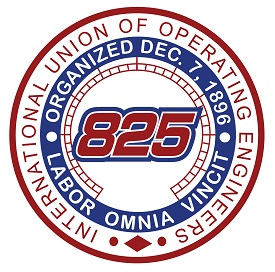 (973) 671-6900
(973) 671-6900
[email protected]
65 Springfield Ave.
Springfield, NJ 07081
Kelly McCormick, PWS LEED AP, Senior Project Manager/NAIOP NJ Regulatory Affairs Committee Co-Chair
 In July 2020, Governor Murphy signed the Permit Extension Act of 2020 (PEA), extending state permits for six months after the end of the COVID-19 public health emergency. The PEA applies to a variety of state and local permits and approvals, including approvals of soil erosion and sediment control plans, waterfront development permits and approvals for applications under the Municipal Land Use Law. The purpose of the extension is to help the state’s real estate market withstand the impacts of the pandemic and quickly resume normal operations once the public health emergency ends. We are extremely active right now preparing permits all over the state for all manner of development. Such proactivity means that Langan clients will be ready to go in 2021, and we look forward to helping them get out of the ground in the new year.
In July 2020, Governor Murphy signed the Permit Extension Act of 2020 (PEA), extending state permits for six months after the end of the COVID-19 public health emergency. The PEA applies to a variety of state and local permits and approvals, including approvals of soil erosion and sediment control plans, waterfront development permits and approvals for applications under the Municipal Land Use Law. The purpose of the extension is to help the state’s real estate market withstand the impacts of the pandemic and quickly resume normal operations once the public health emergency ends. We are extremely active right now preparing permits all over the state for all manner of development. Such proactivity means that Langan clients will be ready to go in 2021, and we look forward to helping them get out of the ground in the new year.
 (973) 560-4590
(973) 560-4590
[email protected]
300 Kimball Drive, 4th Floor
Parsippany, NJ 07054
Jeff Milanaik, Partner, Northeast Region
 Over the next year, many of the trends that were present prior to the pandemic — that have now been accelerated due to its massive economic effects — will fuel continued expansion of New Jersey’s industrial market. A wave of demand driven by mass e-commerce adoption is creating an increasingly constrained supply of buildings and land sites. Those sites that remain available for development will be more complex than in years past, including many that carry significant environmental issues or other technical challenges. As the market continues to tighten, the advantage will naturally fall to industrial players who have the experience and resources to manage these complicated redevelopments. I believe we’ll also see users become more flexible in their requirements as they face intense competition for facilities along the state’s major highways and corridors. For instance, speed to become operational may very well be as important as the size of the facility. These dynamics will continue well after the pandemic has faded, setting the stage for another eventful and highly active year in the state’s already booming industrial market.
Over the next year, many of the trends that were present prior to the pandemic — that have now been accelerated due to its massive economic effects — will fuel continued expansion of New Jersey’s industrial market. A wave of demand driven by mass e-commerce adoption is creating an increasingly constrained supply of buildings and land sites. Those sites that remain available for development will be more complex than in years past, including many that carry significant environmental issues or other technical challenges. As the market continues to tighten, the advantage will naturally fall to industrial players who have the experience and resources to manage these complicated redevelopments. I believe we’ll also see users become more flexible in their requirements as they face intense competition for facilities along the state’s major highways and corridors. For instance, speed to become operational may very well be as important as the size of the facility. These dynamics will continue well after the pandemic has faded, setting the stage for another eventful and highly active year in the state’s already booming industrial market.
 (973) 998-9881
(973) 998-9881
[email protected]
One Gatehall Drive, Suite 201
Parsippany, NJ 07054
Steven G. Mlenak, Partner, Real Estate and Redevelopment & Land Use Departments
 Redevelopment and New Jersey — surely an iconic duo. As the most densely populated state and one of the oldest states in the union, it is no surprise that more and more municipalities are pursuing redevelopment to revitalize older and underutilized areas. While New Jersey’s urban centers have long utilized redevelopment tools, many suburban and rural municipalities that may have eschewed redevelopment in the past for fear of the stigma it carried are now welcoming it as a valuable tool in their revitalization strategies. While improbable just a few decades ago, we’ve seen municipalities such as Princeton, West Orange, Chatham, Westfield and Harding all embrace the redevelopment process. With the flexibility of zoning, availability of tax incentives and the creativity that redevelopment can leverage to improve public infrastructure and reap other community benefits, we expect 2021 to continue the positive growth of redevelopment throughout the Garden State.
Redevelopment and New Jersey — surely an iconic duo. As the most densely populated state and one of the oldest states in the union, it is no surprise that more and more municipalities are pursuing redevelopment to revitalize older and underutilized areas. While New Jersey’s urban centers have long utilized redevelopment tools, many suburban and rural municipalities that may have eschewed redevelopment in the past for fear of the stigma it carried are now welcoming it as a valuable tool in their revitalization strategies. While improbable just a few decades ago, we’ve seen municipalities such as Princeton, West Orange, Chatham, Westfield and Harding all embrace the redevelopment process. With the flexibility of zoning, availability of tax incentives and the creativity that redevelopment can leverage to improve public infrastructure and reap other community benefits, we expect 2021 to continue the positive growth of redevelopment throughout the Garden State.
 (732) 476-2526
(732) 476-2526
[email protected]
75 Livingston Ave.
Roseland, NJ 07068
Bryan Murray, Director of Business Development
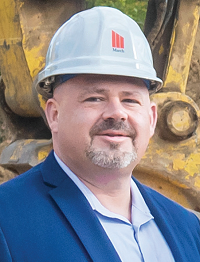 After what can only be described as a tumultuous 2020, the New Jersey/New York metro market will rebound in certain sectors. The industrial and logistics market will continue to grow and be the driver in ’21. The development of data centers will become prevalent nationwide. As a COVID-19 vaccine is rolled out, more people will return to work, which may help the multifamily market recover from a slight dip. As society returns to a sense of normalcy, people will be looking to get out of the house, which should increase experiential shopping, entertainment and cuisine. This may cause the repurposing of retail to slowly come to life. Many companies will shrink their presence in the urban market with the fear of the unknown, which will make way for life science companies to take over many of the vacant suburban offices and corporate campuses. Overall, it should shape up to be a good year seeing some rebound from 2020 and, most importantly, a healthy 2021!
After what can only be described as a tumultuous 2020, the New Jersey/New York metro market will rebound in certain sectors. The industrial and logistics market will continue to grow and be the driver in ’21. The development of data centers will become prevalent nationwide. As a COVID-19 vaccine is rolled out, more people will return to work, which may help the multifamily market recover from a slight dip. As society returns to a sense of normalcy, people will be looking to get out of the house, which should increase experiential shopping, entertainment and cuisine. This may cause the repurposing of retail to slowly come to life. Many companies will shrink their presence in the urban market with the fear of the unknown, which will make way for life science companies to take over many of the vacant suburban offices and corporate campuses. Overall, it should shape up to be a good year seeing some rebound from 2020 and, most importantly, a healthy 2021!
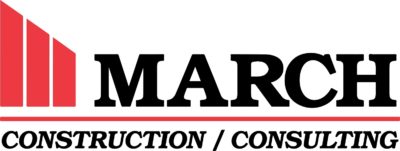 (973) 904-0213
(973) 904-0213
[email protected]
601 Hamburg Turnpike
Wayne, NJ 07470
Eugene T. Paolino, Esq., Partner
 The perspective from the northern New Jersey market is bracing. Early in the COVID crisis, the financial markets that in the past fueled real estate development found themselves in difficult straits. Bond-financed deals were essentially frozen. Lenders were lost in a sea of uncertainty. At the same time, northern New Jersey suburban home sales skyrocketed. Developers, predominantly residential, have resumed their avid interest in places like Jersey City, even stretching south to Bayonne and to Kearny and Newark. As the COVID crisis is now numbered in months and that the national economy, including employment numbers, will gradually improve, projects will start going into the ground and begin in earnest. It is not only the ill effects of COVID which may still persist. Will interest rates remain low? Can a seriously damaged economy make a quick recovery? Will real estate values hold? Will real estate tax revenues meet local needs? Forecasting is a dangerous business.
The perspective from the northern New Jersey market is bracing. Early in the COVID crisis, the financial markets that in the past fueled real estate development found themselves in difficult straits. Bond-financed deals were essentially frozen. Lenders were lost in a sea of uncertainty. At the same time, northern New Jersey suburban home sales skyrocketed. Developers, predominantly residential, have resumed their avid interest in places like Jersey City, even stretching south to Bayonne and to Kearny and Newark. As the COVID crisis is now numbered in months and that the national economy, including employment numbers, will gradually improve, projects will start going into the ground and begin in earnest. It is not only the ill effects of COVID which may still persist. Will interest rates remain low? Can a seriously damaged economy make a quick recovery? Will real estate values hold? Will real estate tax revenues meet local needs? Forecasting is a dangerous business.
 (201) 249-8197 (o) | (201) 707-0580 (c)
(201) 249-8197 (o) | (201) 707-0580 (c)
[email protected]
30 Montgomery St., 11th Floor
Jersey City, NJ 07302
Lloyd A. Rosenberg, AIA, President and CEO
 The migration that started before the pandemic will continue through 2021 with renters willing to trade the conveniences of living in Manhattan for the lifestyle, sense of community and luxury amenities packages they can enjoy in urban and suburban markets throughout North Jersey. A tight for-sale market that has driven housing prices up, along with the desire for maintenance-free living, could also speed up the timeframe for empty-nesters looking to downsize. These and other demographics are looking for things like private outdoor add-ons like outdoor cooking and dining, pools and interesting rooftop terraces along with well-appointed apartment homes that have flexible spaces for multiple uses and ample storage, but at a reasonable price point. We’re currently designing rental communities in Woodbridge, Morristown, Edgewater, New Brunswick and Jersey City to fulfill these lifestyle needs while also being near NJ Transit and all of New Jersey’s major road arteries.
The migration that started before the pandemic will continue through 2021 with renters willing to trade the conveniences of living in Manhattan for the lifestyle, sense of community and luxury amenities packages they can enjoy in urban and suburban markets throughout North Jersey. A tight for-sale market that has driven housing prices up, along with the desire for maintenance-free living, could also speed up the timeframe for empty-nesters looking to downsize. These and other demographics are looking for things like private outdoor add-ons like outdoor cooking and dining, pools and interesting rooftop terraces along with well-appointed apartment homes that have flexible spaces for multiple uses and ample storage, but at a reasonable price point. We’re currently designing rental communities in Woodbridge, Morristown, Edgewater, New Brunswick and Jersey City to fulfill these lifestyle needs while also being near NJ Transit and all of New Jersey’s major road arteries.
 (201) 288-2600
(201) 288-2600
[email protected]
777 Terrace Ave., Suite 607
Hasbrouck Heights, NJ 07604
Ed Shannon Jr., Business Development Manager
 2020 had a tremendous impact on our industry as we witnessed various sectors stalling and others emerging. During these challenging times, the JRM team re-analyzed trends and COVID-19 impacts in various sectors, allowing us to strategize for further growth in the market.
2020 had a tremendous impact on our industry as we witnessed various sectors stalling and others emerging. During these challenging times, the JRM team re-analyzed trends and COVID-19 impacts in various sectors, allowing us to strategize for further growth in the market.
We expect the industrial and distribution sectors to continue thriving significantly as online shopping increases. The health care and life sciences sectors will also continue growing as they rapidly respond to the pandemic and data center construction will boom as more and more businesses demand more data center space to support their workforce and new technologies.
In 2021, JRM will continue to move forward focusing on these emerging sectors and our core sectors — corporate, retail and hospitality — as we expect them to bounce back post-COVID-19.
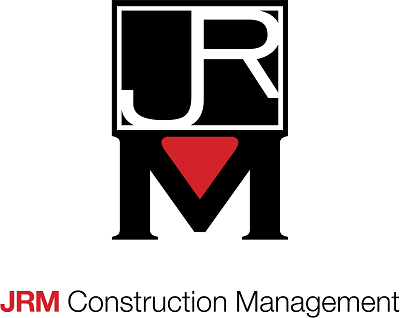 (973) 964-5346
(973) 964-5346
[email protected]
390 Veterans Blvd.
Carlstadt, NJ 07072
Ken Uranowitz, President
 The advantage of being in business for 45 years and persevering through many cyclical shockwaves posed incomparable opportunities for us in 2020, resulting in 78 deals totaling 7,080 units that sold for $1.32 billion — apartment-property sales numbers unmatched by any other multifamily brokerage firm in the tristate area. This level of deal production in one of the most challenging years sets the stage for 2021, during which New Jersey’s tenant pipeline — and demand for apartment rentals — will continue to strengthen thanks to the migration of those fleeing large-population cities as well as investors seeking to shift their geographic strategies accordingly. This, in conjunction with vaccine rollouts and an accommodative Fed interest rate policy, will remedy any residual COVID-19 aftershocks — limited as they were within the resilient multifamily sector. Despite the complex economic variables of the pandemic, multifamily investments remain the most sound, in-demand commercial real estate asset. As such, the wide delta between multifamily investment demand and for-sale product availability will continue to persist throughout 2021 and into 2022.
The advantage of being in business for 45 years and persevering through many cyclical shockwaves posed incomparable opportunities for us in 2020, resulting in 78 deals totaling 7,080 units that sold for $1.32 billion — apartment-property sales numbers unmatched by any other multifamily brokerage firm in the tristate area. This level of deal production in one of the most challenging years sets the stage for 2021, during which New Jersey’s tenant pipeline — and demand for apartment rentals — will continue to strengthen thanks to the migration of those fleeing large-population cities as well as investors seeking to shift their geographic strategies accordingly. This, in conjunction with vaccine rollouts and an accommodative Fed interest rate policy, will remedy any residual COVID-19 aftershocks — limited as they were within the resilient multifamily sector. Despite the complex economic variables of the pandemic, multifamily investments remain the most sound, in-demand commercial real estate asset. As such, the wide delta between multifamily investment demand and for-sale product availability will continue to persist throughout 2021 and into 2022.

